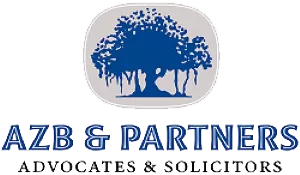The entire advertising ecosystem in India has been left pondering over the requirement to undertake incremental advertising related compliance of self-declaration pursuant to the order of the honourable Supreme Court of India in Indian Medical Association & Anr. v. Union of India & Ors. (Writ Petition (Civil) No. 645 / 2022) ("Order").
The Order, which may have far reaching implications for the entire industry, essentially - (a) deals with the issue of false and misleading advertisements, (b) outlines the responsibility of advertisers, advertising agencies and endorsers, and (c) mandates additional compliance for such stakeholders, including that of self-declaration certification (which is over and above what is envisaged under the extant legal framework governing advertisements) to protect consumer interests.
Interestingly, the Order was passed in a matter that was initially relating to a petition filed for action to be taken against the misleading claims and advertisements of Patanjali Ayurved, for depicting ayurvedic products as a complete cure for certain diseases. Thus, while the focus area of the litigation was to deal with advertisers publishing misleading advertisements related to food and health products, the Order impacted all advertisers and advertising agencies for all advertisements published by them regardless of their nature (i.e., whether health related or otherwise) and across all mediums (television, print media, radio, hoardings and on the digital medium).
This article delves into the developments so far, highlights the overarching scope of the Order, the potential impact it may have on misleading advertisements, and discusses the road ahead.
Background
The Supreme Court, while considering a lack of a robust mechanism in place to comply with the provisions of the 'Guidelines for Prevention of Misleading advertising and Endorsements for Misleading Advertisements, 2022' ("Misleading Ad Guidelines"), exercised powers under Article 32 of the Constitution of India and directed that ("Directions"): -
- Before an advertisement is printed / aired / displayed, a self-declaration certificate ("Certificate") needs to be submitted by the advertiser / advertising agency in terms of the 'Advertising Code' prescribed at Rule 7 of the Cable Television Networks Rules, 1994;
- For the advertisements on television and radio, the Certificate is to be uploaded by the advertiser / advertisement agency on the Broadcast Seva portal of the MIB;
- For the advertisements that are in the press / print media / internet, the Certificate is to be uploaded by the advertiser / advertisement agency on the portal of the Press Council of India;
- Proof of uploading the Certificate needs to be provided by the advertiser to the concerned broadcaster / printer / publisher / TV channel / electronic media (as the case may be); and
- No advertisements should be run on any channel and / or in the print media / internet without uploading the Certificate.
These Directions of the Supreme Court came into effect for all new advertisements issued / telecast / aired / published on or after June 18, 2024. Curiously, the Order was passed on May 07, 2024, and was to come into effect immediately (for advertisements on television and radio) and within 04 weeks (i.e., by June 3, 2024 for advertisements in other mediums). However, a press release issued by MIB extended the timeline and mentioned that the Directions will come into effect on June 18, 2024.
The only advertisements that were exempted from the ambit of the Directions relate to classifieds, personal advertisements, statutory advertisements, public information notices, tenders, and advertisements relating to public functions, as has been clarified by the Ministry of Information and Broadcasting ("MIB") in its advisory dated June 05, 2024.
Impact on stakeholders
The Order has caused immense apprehension amongst all stakeholders and industry players operating in the advertising ecosystem. Advertisers and industry bodies have expressed their concerns on how the Directions can be implemented in such a short time span, specifically for advertisements to be issued on the digital medium, where the quantum of advertisements to be released is large and the turnaround time is critical. Some specific concerns being faced include: -
- Volume: One of the major issues appears to be with the sheer volume of advertisements that industry stakeholders deal with on a daily basis owing to the advent of technology and increased access to the internet. The administrative and logistical burden of uploading Certificates for every single advertisement, irrespective of the nature of advertisement and medium on which it is to be published / aired, is likely to have an impact on the smooth roll out of advertisements.
- Push notifications and website claims: It is unclear whether (i) push notifications soliciting customers to purchase products; or (ii) product related claims made on e-commerce websites, will be considered as advertisements requiring compliance with the Directions. If such notifications / claims are construed as advertisements, it would essentially mean that every such notification / claim would require a separate Certificate to be uploaded each time.
- Portal's inability to handle the load: Reportedly, in the initial days of the process having become active, glitches are being faced by advertisers while uploading the Certificates wherein several hours are spent in uploading the Certificates. It could be fair to assume that the technological systems set up for the process may not be prepared for the load, and therefore could face some serious issues going forward. Failure to upload the Certificates due to such technical issues could land the advertisers in contravention of the Directions for no fault of theirs.
- Impact on small businesses: The effect of the administrative effort required to comply with the Directions is reasonably expected to be more on smaller businesses which probably do not have the means to have dedicated personnel for undertaking such compliance or be able to delegate the burden to third parties. While the paperwork is certainly expected to increase for small and big players alike, the heat as usual is expected to fall more on smaller players.
Penalty for Non-Compliance
While no specific penalty has been provided for non-compliance with the Directions, given that the Directions are pursuant to an order passed by the Supreme Court, failure to comply with the Directions could result in initiation of contempt proceedings against the non-compliant entity / person. Additionally, non-compliance with the Directions may also simultaneously invite consequences under other laws such as the Misleading Ad Guidelines.
Effectiveness of the Order and the Directions
There is no clarity on the value that the Order and the Directions bring in to effectively deal with misleading advertisements. Even prior to the Order, advertisers were already obligated to comply with all advertising laws, including the Misleading Ad Guidelines. The Order and the Directions do not also state that the Certificate is a certifying process by the authorities after which authorities may not take any action against the advertisement and stakeholders involved and that such advertisements will be shielded from further regulatory scrutiny. Thus, it seems that the self-declaration process mandated only appears to be superficial in nature and may end up as a compliance gimmick which may only add additional administrative burden on all stakeholders.
The self-declaration of advertisements might serve as a deterrent, however, its incremental value in combatting misleading advertisements remains speculative. Only time will reveal whether these measures truly enhance the effectiveness of regulatory efforts against deceptive advertising practices.
New Developments & Road Ahead
While compliance with the Directions is recommended and is also being undertaken, it is apparent that the industry is keen for the applicability of the Directions to be restricted to health-related advertisements, instead of advertisements for all products and services. There have also been suggestions to exclude digital media from the ambit of the Directions. Certain industry bodies have also impleaded themselves as parties in this ongoing matter before the Supreme Court.
While we expect further clarity to emerge on the next date of hearing in the matter before the Supreme Court, i.e., July 9, 2024, in the interim, the MIB has taken a significant step and issued an advisory on July 03, 2024 ("Advisory") which for the time being, comes as a huge relief for all impacted stakeholders.
The Advisory, which is in supersession of MIB's earlier advisory, states that the self-declaration certificates are only mandatory for food and health advertisements which will have to be uploaded annually on the Broadcast Seva and Press Council of India portals. This Advisory is evidently a major departure from not only the earlier advisory issued by the MIB but also the Directions of the Supreme Court as explained above and raises questions on the MIB's power to read down the Order and the Directions.
All eyes will now be on the reaction of the Supreme Court to such Advisory being issued, on the next date of hearing in this matter.
The content of this article is intended to provide a general guide to the subject matter. Specialist advice should be sought about your specific circumstances.




